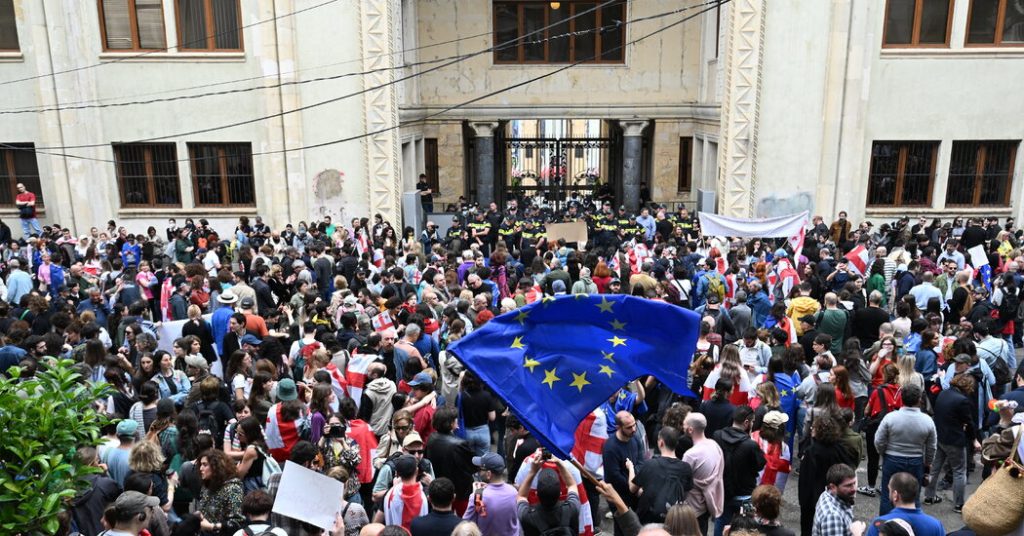Georgia’s Parliament has approved a contentious bill that requires nongovernmental groups and media organizations receiving at least 20% of their funding from abroad to register as organizations pursuing the interests of a foreign power. The justice ministry will monitor compliance, with violations potentially resulting in fines over $9,000. The bill has sparked protests and clashes in Tbilisi, with many Georgians worried it could undermine the country’s pro-Western stance and lead to closer ties with Russia, upsetting the geopolitics of the Caucasus region.
The passing of the bill marks a crucial moment for Georgia, one of the most pro-Western former Soviet states. Critics fear the law could erode the country’s relationship with the United States and the European Union. Demonstrators have called for a change in government and expressed concerns about Georgia’s independence being threatened by Russia. The highly polarized nature of Georgian society has been highlighted by this debate, with views split on whether the government is prioritizing Moscow over the West.
President Salome Zourabichvili’s veto of the bill was overridden by lawmakers from the ruling Georgian Dream party, leading to its approval. Protests calling the bill the “Russian law” have erupted, with critics saying it resembles legislation used by the Kremlin to suppress opposition. The government believes the legislation will enhance Georgia’s sovereignty against external influence and ensure peace and stability. The bill is part of a broader package of laws aimed at limiting the influence of foreign entities in Georgia.
The Georgian Dream party has pushed through the bill despite previous protests against similar legislation. Critics accuse the government of aligning more closely with Moscow and adopting methods resembling those used in Russia. The government claims it wants Georgia to join the EU and NATO but must maintain a neutral stance on Russia to avoid being drawn into the conflict in Ukraine. The law is seen as an attempt to counter outside interference and strengthen the country’s independence.
The government’s strained relationship with NGOs stems from accusations that they are pushing social issues, like LGBTQ rights, that conflict with Georgian values and undermine sovereignty. The government has accused NGOs of being adversaries rather than partners in state-building. The bill has prompted the US to review cooperation with Georgia and impose visa restrictions on individuals deemed to have undermined democracy. In response, Russia has criticized the US for interfering in the affairs of sovereign states.
While Georgia strives to maintain its pro-Western orientation, the passage of this bill has raised fears that closer ties with Russia may come at the expense of its relationship with the US and the EU. The law has ignited strong opposition from protesters who see it as a threat to democracy and sovereignty. The government insists the bill is necessary for safeguarding national interests and preventing external interference, particularly as the region grapples with complex geopolitical dynamics involving Russia, Turkey, Iran, and the West.








